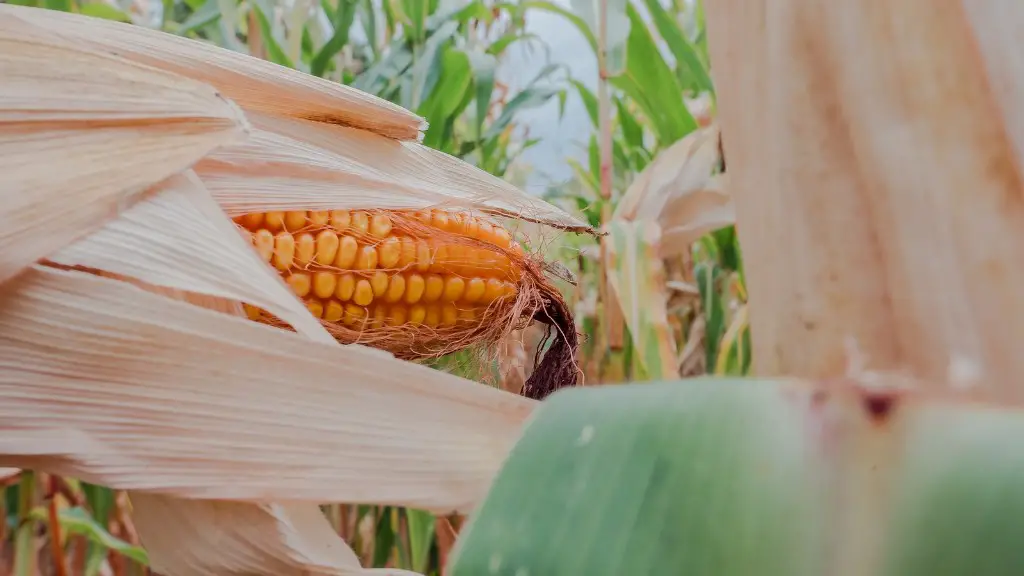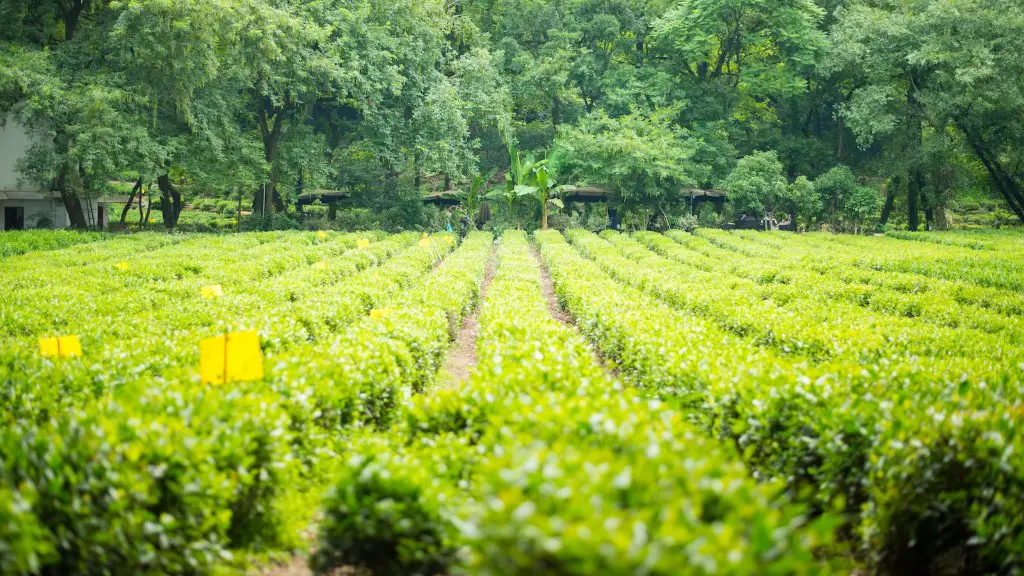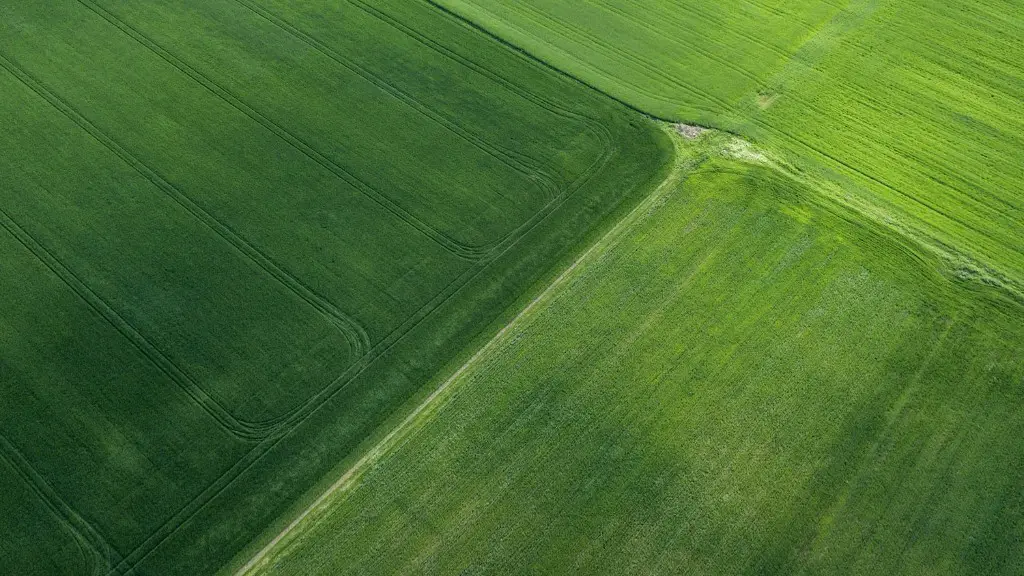Agriculture can significantly affect the quality of water in many different ways. By introducing pollutants into water sources, or storing water for long periods of time, agricultural activities can cause major water quality issues. In this blog, we’ll explore how agriculture impacts the quality of water and what steps can be taken to mitigate these effects.
One of the most direct ways that agriculture can affect the quality of water is through soil erosion. When the soil erodes, it carries with it nutrients, pesticides, and other pollutants, which can contaminate rivers and streams leading to water quality issues. Additionally, fertilizers and other chemicals used by farmers can easily seep into rivers and lakes, creating large-scale contamination.
Apart from soil erosion, agricultural activities can also cause water pollution and depletion. For instance, when large amounts of water are used for irrigation, nearby water sources can become depleted. Similarly, when livestock and farm animals are allowed to drink from a body of water, or when wetland areas are destroyed for agricultural purposes, levels of water can drop significantly. Additionally, runoff from areas that are overfarmed or where synthetic fertilizers are used can add harmful bacteria and chemicals to water sources which can be hazardous to both people and animals.
In order to reduce the impact of agriculture on water quality, a number of steps can be taken. One of the most important aspects is soil conservation. Proper cultivation techniques, such as crop rotation and mulching, can help prevent soil erosion, allowing the soil to remain in place and reducing contaminants entering water sources. Additionally, farmers should be careful to use only the necessary amounts of fertilizers and pesticides, as well as choosing natural alternatives that are less damaging to the environment.
Finally, farmers should be encouraged to use innovative irrigation techniques that conserve water and prevent over-irrigation. This can reduce water depletion and contamination, while also increasing the efficiency of the agricultural operations. Additionally, farmers should take steps to protect rivers, streams, and wetlands from potential contamination, such as fencing off areas that are close to water sources or providing alternative sources of drinking water for livestock.
Effect on Marine Life
Agriculture can also have adverse impacts on marine life due to its contribution of pollutants to water sources. The most common pollutants include nutrients, pesticides, and other chemicals, which can cause water quality issues due to over-enrichment and oxygen depletion. For instance, nitrogen from both natural and artificial sources, such as fertilizer run-off, can enter a body of water and lead to eutrophication.
Eutrophication occurs when excessive nutrients, such as nitrogen, are added to a body of water, resulting in an overgrowth of algae and other aquatic plants. This can lead to a decrease in oxygen levels in the water, resulting in an increase in fish kills and declines in native species. Additionally, the use of harmful pesticides and other chemicals by agricultural operations can have a devastating effect on aquatic life, leading to toxic contamination.
In order to reduce the impact of agriculture on marine life, farmers should be encouraged to use best management practices when it comes to the use of fertilizers and pesticides. Additionally, proper soil conservation techniques, such as crop rotation and mulching, should be utilized. Furthermore, farmers should be encouraged to use innovative irrigation techniques, such as no-till and drip irrigation, in order to reduce water depletion and contamination.
Effect on Human Health
The effects of agricultural activities on water quality can also have an adverse impact on human health. Contamination from fertilizer, pesticides, animal waste, and other pollutants can enter water sources and find its way into drinking water, leading to a number of health issues. Additionally, when water is depleted due to agricultural activities, it can cause shortages in certain areas, leading to inadequate access to clean drinking water.
In order to reduce the potential health risks that agricultural activities can cause, farmers should take steps to protect water sources from potential pollutants. This can be done by reducing the amount of fertilizer, pesticides, and other chemicals used, as well as by utilizing proper soil conservation techniques and innovative irrigation techniques that conserve water and prevent over-irrigation. Additionally, farmers should be encouraged to use natural alternatives to chemicals, such as compost and other organic materials, in order to reduce the risk of contamination.
Impact on Climate Change
Agriculture can also have significant impacts on the climate due to its production of greenhouse gases, such as methane, nitrous oxide, and carbon dioxide. Methane and nitrous oxide are both potent greenhouse gases, while carbon dioxide is the most abundant. While all of these gases contribute to global warming, the impact of agricultural activities is particularly concerning, as the industry is responsible for a large portion of global GHG emissions.
In order to reduce the impact of agricultural activities on climate change, farmers should be encouraged to adopt sustainable practices and technologies. For instance, soil conservation techniques, such as crop rotation and composting, can help to reduce soil erosion and keep nutrients from entering water sources. Additionally, the use of efficient irrigation systems, such as sprinklers and drip systems, can reduce water use and help to mitigate water depletion. Lastly, farmers should be encouraged to use alternative energy sources, such as solar and wind power, in order to reduce emissions from agricultural activities.
Impact on Biodiversity
Agriculture can have an adverse impact on biodiversity due to the destruction of natural habitats and the introduction of non-native species. For instance, when wetlands are destroyed for agricultural purposes, native species living in the area can be lost. Additionally, when artificial fertilizers and other chemicals are used, they can disrupt the delicate balance of the local ecosystem, leading to the decline of certain species.
In order to reduce the impact of agriculture on biodiversity, farmers should be encouraged to utilize best management practices when it comes to the use of fertilizers, pesticides, and other chemicals. Additionally, they should take steps to protect and conserve sensitive areas, such as wetlands and other natural habitats, from potential contamination or destruction. Furthermore, farmers should be encouraged to use alternative sources of energy and composting techniques in order to reduce emissions and protect the environment.
Impact on Rural Areas
The effects of agriculture on water quality can also have a significant impact on rural areas due to the potential for economic losses. When water sources become contaminated or depleted, it can lead to lower crop yields and reduced access to clean drinking water. Additionally, when runners from agricultural operations enter the water supply, it can lead to water-borne illnesses, which can have serious impacts on public health.
In order to reduce the impacts of agriculture on rural areas, farmers should be encouraged to utilize best management practices when it comes to the use of fertilizers, pesticides, and other chemicals. Additionally, innovative irrigation techniques, such as no-till and drip irrigation, should be used in order to reduce water depletion and contamination. Lastly, farmers should be encouraged to use natural alternatives to fertilizers and pesticides, such as compost and other organic materials.




